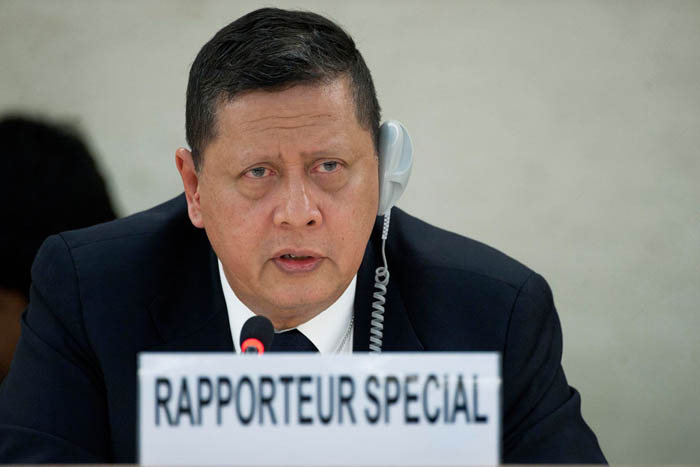Mr. Darusman also noted the increasing references and the public discussions on a possible unification in the near future that are taking place in the Republic of Korea.
“This discussion on unification makes the work on accountability even more urgent,” he continued. “While unification is paramount, accountability measures for crimes against humanity need to be laid down firmly and robustly by the international community. At the same time, we should not lose sight of the fact that both unification and accountability share a common goal – the improvement of the human rights situation on the Korean peninsula.”
The visit to Seoul was the first by a UN Special Rapporteur since the Office of the High Commissioner for Human Rights (OHCHR) established an office in the capital of the Republic of Korea to work on the human rights situation in DPRK.
Mr. Darusman met with senior officials from the Ministry of Foreign Affairs and the Ministry of Unification as well as with representatives of the National Human Rights Commission of Korea and the Korea Institute for National Unification, non-governmental organizations, defectors and the diplomatic community.
“As we know, numerous efforts are ongoing, both here in Seoul and around the world, to follow up on the findings and recommendations of the report prepared by the Commission of Inquiry on Human Rights in the DPRK,” Mr. Darusman explained.
“The report documented wide-ranging and gross human rights violations and crimes against humanity that continue to be committed as we speak. It is now time to consider the concrete measures that should be taken to ensure accountability for those crimes and to set up a broader process of transitional justice.”
The newly established OHCHR office in Seoul was mandated by the Human Rights Council as a follow up to the Commission of Inquiry. It works to strengthen the monitoring and documentation of the human rights situation in the DPRK, and engages in capacity building, technical assistance and advocacy activities with a wide range of partners.
“During this visit, my attention was repeatedly drawn to the issue of the DPRK nationals who are sent abroad to work and reportedly subjected to forced labour by their Government,” Mr. Darusman stated. “I was also briefed on the situation of women in the country and alleged abductions of Korean and other nationals, including detentions of four recent cases of Korean citizens, by the DPRK.”
He added that while some of these issues will be included in his report to the General Assembly in October, they require further investigations to identify the people responsible for these crimes.
Meanwhile, the expert announced he will be returning to the Republic of Korea in late November for further discussions. He also intends to travel to Japan on a similar assessment mission early next year, and will elaborate on his findings in his report to the Human Rights Council in March 2016.
Independent experts or special rapporteurs are appointed by the Geneva-based Council to examine and report back on a country situation or a specific human rights theme. The positions are honorary and the experts are not UN staff, nor are they paid for their work.
More about:
















































